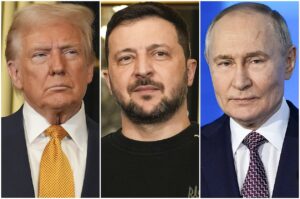
The White House is looking for a venue for a possible meeting at the end of next week, where the US, Russia, and Ukraine could discuss resolving the conflict — with Ukraine actively demanding its participation in any negotiations.
CBS News representatives confirm that the US administration is looking for a venue for a meeting between Presidents Trump, Putin, and Zelensky, which could take place as early as next week.
The summit between Trump and Putin is scheduled for August 15 in Anchorage, Alaska, which the US administration is calling a fact-finding meeting, with no clear promises to end the conflict.
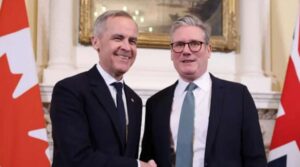
British Prime Minister Keir Starmer spoke by phone with Canadian Prime Minister Mark Carney on Monday, during which both sides reaffirmed their unwavering support for Ukraine and the need to end Russian aggression.
“The Prime Minister spoke to the Prime Minister of Canada Mark Carney this afternoon. They discussed their unwavering support for Ukraine and ongoing work to stop the killing and end Russia’s war of aggression. Both leaders underscored that Ukraine’s future must be one of freedom, sovereignty, and self-determination,” says a message published on the official website of the UK government.
They also praised international efforts led by US President Donald Trump to bring peace: “They welcomed continued international efforts, led by President Trump, to bring peace and agreed that this must be built with Ukraine – not imposed upon it.”
Both leaders agreed they would continue to work closely with President Trump and President Zelenskyy over the coming days.
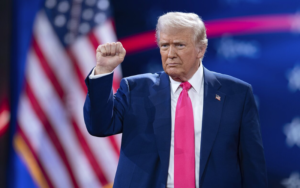
US President Donald Trump has decided to impose additional tariffs of 25% on India due to its purchase of Russian oil, according to a presidential decree published by the White House.
“Thus, goods from India imported into the US will be subject to ad valorem duties of 25%,” the document says.
“I have determined that it is necessary and appropriate to impose ad valorem duties on imports from India that directly or indirectly purchase oil from the Russian Federation,” Trump explained in the decree.
Ad valorem duties are levied as a fixed percentage of the price of the goods, rather than per unit of cargo.
At the same time, the order specifies that it applies not only to oil of Russian origin, but also to petroleum products.
“The term ‘oil of the Russian Federation’ means crude oil and petroleum products extracted, refined, and exported from the Russian Federation, regardless of the nationality of the company involved in the production or sale of oil or petroleum products,” the document explains.
The term “indirect import” is also clarified, which, according to the US, means the purchase of Russian oil through intermediaries or third countries, whereby the origin of the oil can be traced back to Russia if the head of the Ministry of Trade, who consulted with the Secretary of State and the head of the Ministry of Finance, comes to such conclusions.
Last week, Trump announced that he was imposing 25% tariffs on Indian goods, as well as “penalties” for India’s purchase of Russian oil and weapons. Trump later expressed hope that India would stop buying Russian oil.
Trump then threatened to seriously increase tariffs on Indian exports, arguing that India’s purchases of Russian oil contribute to the continuation of Russia’s military aggression against Ukraine.
In turn, the Indian Foreign Ministry said that the US and EU’s dissatisfaction with Delhi’s purchase of Russian oil was unfounded. Trump’s threats were also condemned by the ruling party and the opposition in India.
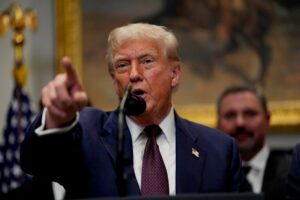
US President Donald Trump has signed an executive order raising tariffs on imports from Canada from 25% to 35% as part of efforts to combat the flow of illegal drugs across the northern border. The new tariffs will take effect on August 1, 2025, according to the White House’s official website.
According to the administration, the decision was made against the backdrop of “Canada’s persistent failure to arrest drug traffickers, seize illegal drugs, or coordinate with U.S. law enforcement agencies.”
“The president’s further actions are necessary and appropriate to protect the lives of Americans, as well as the national security and foreign policy of the United States of America,” the statement said.
The White House recalled that Trump declared a state of emergency under the International Emergency Economic Powers Act (IEEPA) in response to the crisis caused by fentanyl and other illegal drugs.
The preferential treatment for goods covered by the US-Mexico-Canada Agreement (USMCA) remains in place. At the same time, goods that are transshipped to avoid the new tariff will be subject to a separate 40% transshipment duty.
It is noted that in this fiscal year alone, more fentanyl has been seized at the northern border of the United States than in the previous three years combined.
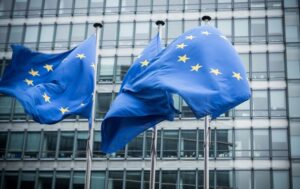
European leaders and industry circles have reacted strongly to US President Donald Trump’s announcement that he will impose 30% tariffs on imports from the EU from August 1, a significant increase on the current 10% base rate, according to Euractiv.
According to the publication, the decision has caused outrage among EU member state leaders, who are calling for an immediate and tough response from Brussels. European diplomats will hold an emergency meeting on Sunday to discuss measures
Bernd Lange, chairman of the European Parliament’s Trade Committee, called Washington’s actions “arrogant and a slap in the face” and said that countermeasures should take effect as early as Monday.
French President Emmanuel Macron called on the European Commission to resolutely defend the EU’s interests if no agreement is reached by August 1.
Spanish Prime Minister Pedro Sánchez noted the strength of the single market, while Italian Prime Minister Giorgia Meloni expressed hope that escalation could be avoided.
Hungary criticized the European Commission, saying that tariffs should have been lowered after Trump’s return.
Meanwhile, representatives of European industry are warning of serious consequences of the new tariffs. The Federation of German Industries (BDI) called Trump’s statement “an alarm bell” and called for a quick solution to avoid further escalation. According to official data, German exports to the US have already fallen to their lowest level since March 2022,” the statement said.
The food industry, particularly the wine sector, is particularly affected. The Italian wine association UIV said the new tariffs could lead to an embargo on 80% of Italian wine exports to the US. “This is the darkest page in the relationship between two historic allies,” said UIV President Lamberto Frescobaldi.
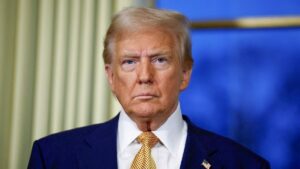
According to a column by Caroline de Gruyter published on EUobserver, circles close to Donald Trump’s administration are preparing a strategy to change regimes in EU countries through active support for far-right movements in Europe.
The Geneva-based analyst claims that Washington intends to use parties such as the AfD in Germany, PiS in Poland, and Patriots for Europe to weaken Brussels’ position and “turn Europe into a vassal of the US.” According to EUobserver sources, the White House is already providing “geopolitical and financial support” to these movements.
EUobserver is a European publication focusing on EU politics. The original article is a column by Karolina de Grutter.